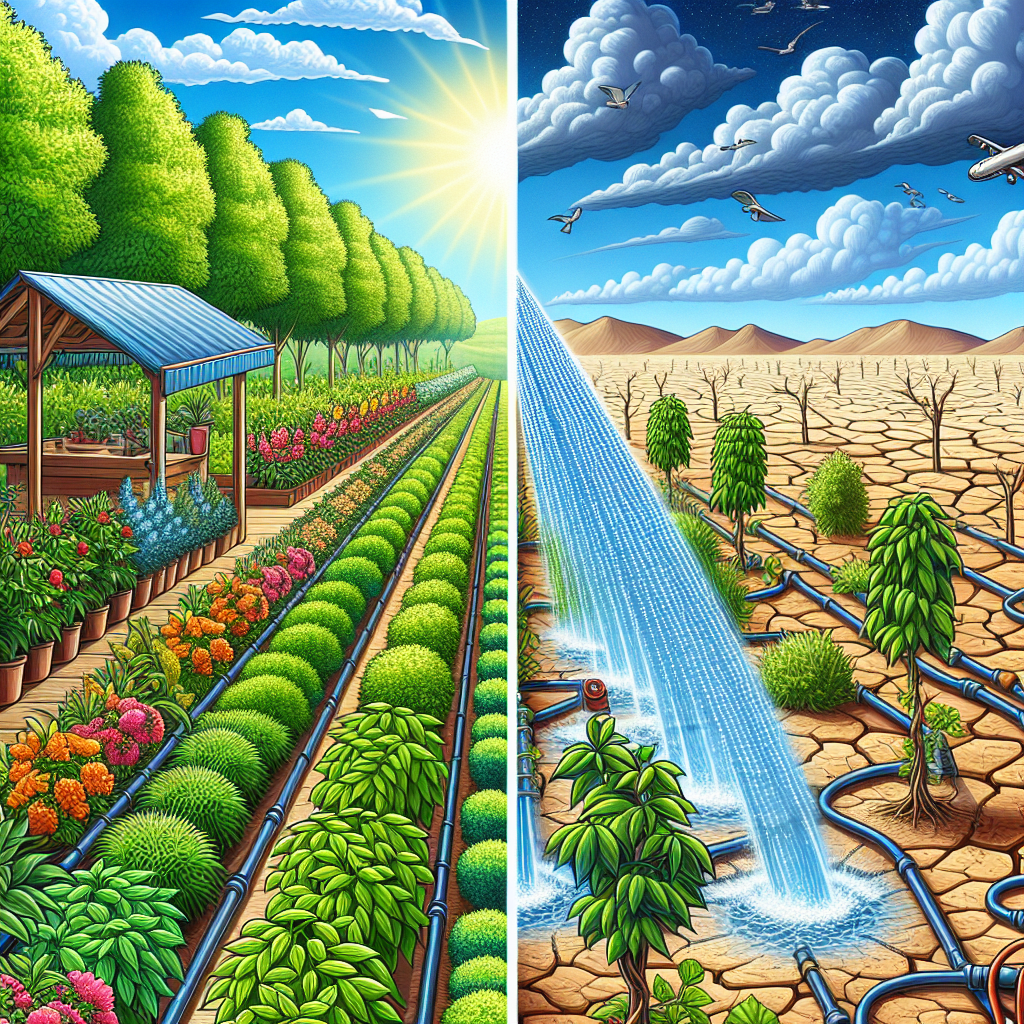Irrigation is a critical component of modern agriculture, allowing farmers to efficiently water their crops and ensure optimal growth and production. While there are many different methods of irrigation available, one of the most effective and efficient techniques is slow drip irrigation. This method involves delivering a slow, steady stream of water directly to the roots of plants, rather than flooding the entire field with water. There are numerous benefits to implementing slow drip irrigation, including improved water efficiency, reduced weed growth, and increased crop yields.
One of the primary benefits of slow drip irrigation is its superior water efficiency. Traditional methods of irrigation, such as flooding or overhead sprinklers, can result in significant water loss due to evaporation and runoff. In contrast, slow drip irrigation delivers water directly to the roots of plants, where it is most needed. This targeted approach minimizes waste and ensures that plants receive the optimal amount of hydration without excess water being lost to evaporation or runoff.
Additionally, slow drip irrigation can help reduce weed growth in agricultural fields. By delivering water directly to the roots of crops, this method deprives weeds of the moisture they need to thrive. Without an abundant water supply, weeds are less likely to establish themselves in fields irrigated using slow drip systems. This can significantly reduce the need for herbicides and manual weeding efforts, leading to cost savings for farmers as well as a healthier growing environment for crops.
Another key benefit of slow drip irrigation is its ability to increase crop yields. By providing a consistent supply of water directly to plant roots, this method promotes healthy growth and development. Plants are able to absorb nutrients more efficiently when they have access to a steady supply of moisture, leading to improved overall health and productivity. Additionally, slow drip irrigation can help reduce stress on plants during dry periods or droughts by ensuring that they receive adequate hydration even when natural rainfall is scarce.
In addition to these direct benefits for crops and farmers, slow drip irrigation also has positive environmental impacts. By using water more efficiently and reducing waste through evaporation and runoff, this method helps conserve valuable resources and reduce overall demand on freshwater supplies. As concerns about water scarcity continue to grow around the world, implementing sustainable irrigation practices like slow drip systems can play a crucial role in preserving our natural resources for future generations.
Furthermore, slow drip irrigation can also help improve soil health by minimizing erosion and nutrient leaching. Traditional methods of irrigation that rely on flooding or overhead sprinklers can cause soil compaction and nutrient loss by washing away essential minerals with excess water flow. In contrast, slow drip systems deliver water directly to plant roots without disturbing the topsoil layers or washing away vital nutrients. This allows soils to maintain their structure and fertility over time while promoting healthy root development for crops.
Overall, there are many compelling reasons why farmers should consider implementing slow drip irrigation on their fields. From improved water efficiency and reduced weed growth to increased crop yields and environmental sustainability benefits; this method offers numerous advantages over traditional forms of irrigation. As agriculture continues to face challenges related to climate change; resource scarcity; food security; adopting innovative techniques like slow drip systems will be crucial in ensuring sustainable farming practices into the future.
In conclusion; Slow Drip Irrigation provides a promising solution for modern agricultural challenges; offering numerous benefits for both farmers’ productivity; crop health; environmental sustainability; resource conservation among others mentioned above! Embracing this technique can lead agriculture towards greener more efficient practices that will benefit society as a whole!













